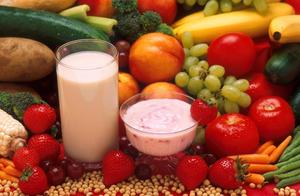Fat and sugar are best enjoyed in moderation, but they're found in so many food that it can be very hard to avoid them.
If you want to take control of your diet, these simple tips from the NIH website can help you reduce the amount of fat and sugar your eat:
- Just because a food is low-fat or fat-free doesn’t mean it’s also low in calories. Those foods can have a large amount of sugar, causing them to also have a large number of calories.
- Many people don’t consider the added sugar in beverages like soda or juice, but these can also cause you to gain weight. Some studies show that people who cut these sugary drinks out of their diets noticed significantly reduced weight gain.
- Sugars found naturally in foods like fruit or milk are beneficial to your body, and fresh fruit can make a healthy alternative to other sugary snacks.
You can find more tips about managing your fat and sugar intake on the NIH's website.






 Equal Housing Opportunity
Equal Housing Opportunity